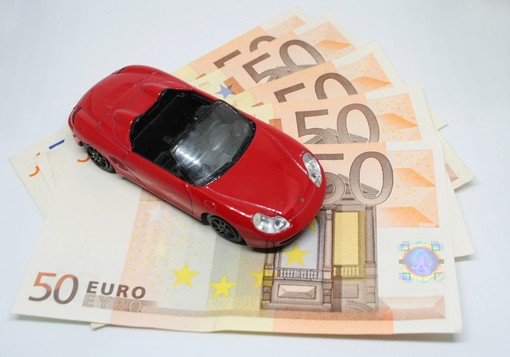Your driving record doesn't impact vehicle insurance costs. An insurance provider may use your personal and financial information to assess your auto insurance premiums.
It's not uncommon to be charged extra for cheap Indiana auto insurance despite having years of experience behind the wheel and a spotless driving record. This is especially true if you're unemployed, don't own a home, or work in the service industry.
Researchers Discover a Rate Disparity Between Wealthy and Low-Income Drivers
Low-income drivers are charged disproportionately more for their automobile insurance when personal information about their lives is considered.
Up to 92 percent, more money is paid by low- and middle-income drivers than wealthy ones.
Low- and moderate-income drivers with clean driving histories are charged 40% to 92% more on average by the country's four most major and well-known vehicle insurance companies than their wealthier counterparts, according to a study released in 2016. This study's findings have been widely discussed.
Blue-collar workers may be able to pay more than their higher-level counterparts
Consumer Reports discovered that the annual premium for a driver with only a high school level might be as much as $115 higher than that of a driver with a bachelor's or master's degree.
Even if you're an excellent driver, your insurance prices will always be higher because of your driving record and where you live.
Drivers with a lower level of education are charged a higher insurance rate
Similar trends were found in a 2020 study; however, unlike other insurance quote studies that use hypothetical trials, the findings were based on actual vehicle insurance quotations issued to drivers.
Over the last year, the analytics team examined more than 25 million vehicle insurance premiums that passed through the platform of the virtual insurance company. To put it another way, drivers with a bachelor's degree are spending an average of $134 more on gas each year than those without.
Calculating Averages
There is nothing new about the existence of disparities in exchange rates. Young men who enjoy the thrill of a fast car already know this. Why? Men between 16 and 25 are at risk of car accidents, with speeding accounting for most of those accidents. The cost of car insurance goes down after a particular age, once a driver has proven themselves prudent.
Car insurance premiums are determined by various factors, and do they affect the poor more than the wealthy?
Age
If you're a more experienced driver, you'll have fewer accidents than a less professional driver, such as an adolescent. Your insurance premiums will rise if you allow under-25-year-olds to drive your vehicle. No difference.
Credit
Insurers utilize FICO scores when deciding premiums. An insurance policy's credit score is determined by factors such as the debt the policyholder carries and how long they've had an established credit rating. Regular, on-time payments on credit cards and mortgages raise a person's credit score, whereas late payments lower a person's score. Yes. As a rule, the credit scores of the poor are lower.
Location
Auto accidents, car thefts, and litigation are all factors in determining insurance prices based on local statistics. Yes. A person's income primarily influences the level of crime in an area.
Model and Create
Insuring a car is more expensive if it is expensive, has a high theft rate, requires more repairs, or has a poor safety record. There is no difference.
Delay in Obtaining Insurance
And there's the issue of latency. In the event that you haven't had insurance for a long period of time, you may be required to pay more. Yes. Even if they don't utilize something, individuals in poverty won't pay for it! If they reside close to their workplace, they may be able to avoid driving for significant amounts of time.
Record of Safe Driving
The higher your insurance premiums would be if you have a history of traffic offenses and accidents. There is no difference.
Policy's Scale
Having a vast policy will cost you more money. Your auto and house insurance with the same company is often an excellent way to save money on your insurance premiums. Yes. Many lower-income persons do not own their own homes, boats, or other types of property. This means that bundling discounts are not possible for them.
Does the government have a particular interest in raising rates for low-income motorists?
Insurance companies pricing practices are more complicated than critics realize, according to Friedlander, despite the notion that they target low-income motorists. A slew of variables determines rates. There are more than a few. Discrimination is not tolerated in any way by design.
For example, it would be illegal for insurers to charge higher rates to low-income drivers just because they are separated from high-income drivers. Instead, your insurance rate is affected by over a dozen different variables.
Conclusion
As a low-income driver, your vehicle insurance premiums may be higher than those of higher-earning motorists. Even though it's inconvenient, searching around for insurance and altering your coverage and deductible amounts can help you get a better deal.














